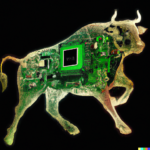Welcome to the newest edition of FindBiometrics’ AI update. Here’s the latest big news on the shifting landscape of AI and identity technology:

xAI is in talks with Oracle about a $10 billion contract to rent the latter’s cloud servers. Elon Musk’s AI startup would get access for “a period of years,” according to The Information, which compares the deal to agreements that rivals Anthropic and OpenAI have established with larger cloud computing providers.
The Chinese government is urging domestic tech companies to buy local when it comes to AI chips, singling out US-based Nvidia as a chipmaker to avoid. It’s part of the AI arms race between China and the US, which has taken measures to sanction the sale of certain kinds of AI chips to its rival. Municipal governments in China also recently started offering “computing vouchers” to help domestic startups cope with data center costs.
On that note, Microsoft has invited some of its China-based employees to relocate outside of the country. The offer was reportedly extended to staff in its Azure business who are involved in AI and machine learning. CEO Satya Nadella had emphasized earlier this year that China doesn’t represent “a large business” for Microsoft, and that Chinese engineers “contribute to an American company’s intellectual property.”
In Japan, SoftBank reported a $1.5 billion profit for the latest quarter, thanks in large part to its investment in the AI chip designer Arm. SoftBank’s CFO, Yoshimitsu Goto, described the firm’s “AI shift”, asserting that “Arm and the portfolio companies should create a new ecosystem going forward.”
OpenAI’s co-founder and chief AI safety evangelist, Ilya Sustkever, has resigned. The move follows several other high-profile departures of individuals connected to the firm’s AI safety (often called “superalignment”) efforts, including Leopold Aschenbrenner, Pavel Izmailov, and Daniel Kokotajlo. OpenAI says it’s now going to integrate the previously arms-length superalignment team into its general research group.
The company launched its latest flagship AI model, GPT-4o, days earlier. The “Omni” model is multimodal, meaning it can take input in the form of text, audio, image, or video, and output any combination of the same. It also has a remarkably life-like voice interaction mode, portending a future in which it will be hard to know whether you’re talking to a human or an AI system through digital channels.
Researchers with the Idiap Research Institute’s Biometrics Security and Privacy group have come up with an innovative way to generate diverse face models for AI training. It’s inspired by particle physics, turning AI-generated faces into spherical particles that swirl around and bump into each other, allowing the overall system to figure out how to distribute different kinds of face characteristics to populate the dataset.
The chatbot’s take: We asked GPT-4o to lay out the stakes of OpenAI’s AI safety departures.

–
May 17, 2024 – by Alex Perala








Follow Us